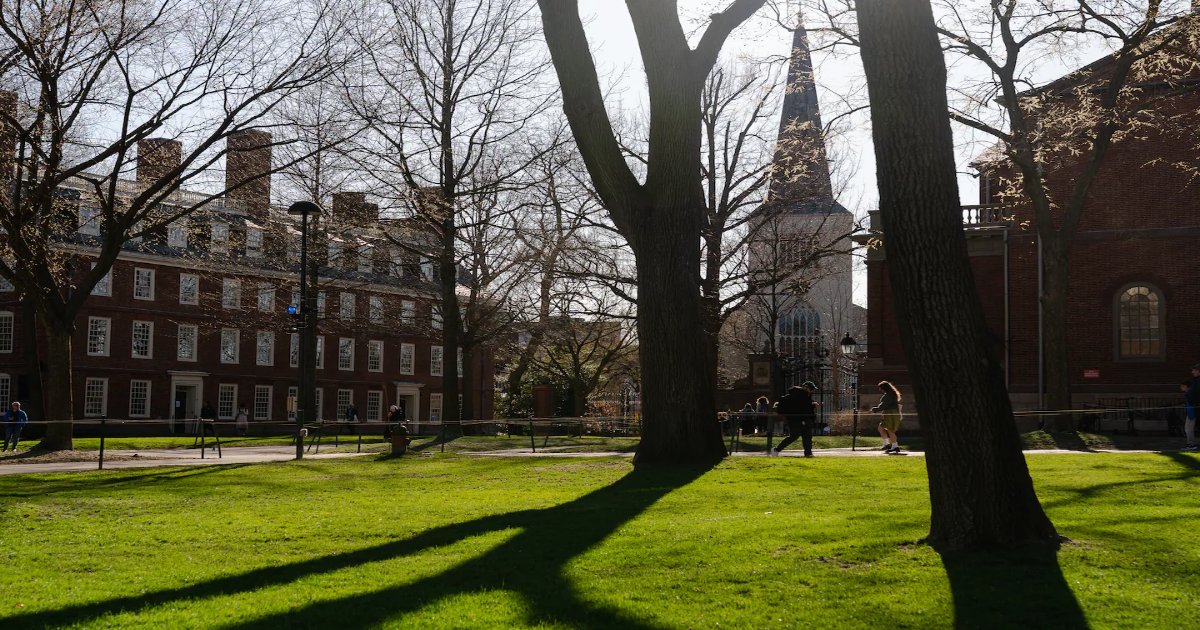“The Universities Are the Enemy,” a 2021 speech by JD Vance, quoted Richard M. Nixon: “The professors are the enemy.”
In 1972, Nixon conveyed this view only to senior staff in the White House because he was angry about widespread opposition to the Vietnam War. (His words eventually became known because of the Oval Office taping system.) Nixon also demanded that federal funding be cut to MIT, but political appointees in the Office of Management and Budget thwarted him by threatening to resign. Similarly, presidential staff at the Treasury Department and Internal Revenue Service refused to launch audits of people on Nixon’s enemies list.
In contrast, President Donald Trump has launched a public blitzkrieg against Harvard. On Monday, he froze $2.2 billion in federal funding after the university rejected a far-reaching list of contradictory demands, including the hiring of an external auditor to evaluate the “viewpoint diversity” of its students, faculty, staff and leadership. On Wednesday, Treasury asked the IRS to consider revoking Harvard’s tax-exempt status. (Donations to the university could dry up if they’re not tax-deductible.) Next, the Department of Homeland Security threatened to revoke Harvard’s ability to host international students, who make up 27 percent of the student body. In the coming months, Trump and congressional allies hope to impose devastating taxes on university endowment funds — Vice President Vance has suggested as high as 35 percent — and plan to scrutinize their investments in China and clean energy.
Harvard deserves the credit it has received for fighting back. With a $53 billion endowment, augmented by $750 million in borrowing last week, the world’s wealthiest university can weather this storm, even if some layoffs and budget cuts will be required. Harvard also has the advantage of superb legal representation.
The university, founded in 1636 to train clergy in the colonies, has a strong case that the federal government froze funding without following procedures set out in civil rights law. The notice that Trump’s team sent to Harvard described no specific civil rights violations. The university also was entitled to a hearing it did not get, and Congress was supposed to be notified 30 days before any penalty was applied. What’s more, the White House has no authority to restrict money for programs beyond those that fail to comply with civil rights law.
For Trump and Vance — two Ivy League graduates who have gotten where they are in part by exploiting the resentments of less educated Americans who feel left behind — academia is a soft target. Following the Oct. 7, 2023, terrorist attacks by Hamas in Israel, universities have seemed overly dismissive of rising antisemitism. And conservatives have long experienced hostility for expressing views at odds with the liberal orthodoxy that tends to dominate elite institutions. President Joe Biden’s cancellation of student debt, which stretched legal limits, further alienated Americans without college degrees. This explains why only 20 percent of Republicans have a lot of confidence in higher education, down from 56 percent in 2015, according to Gallup polling conducted last July. Rising college costs have had an effect, too.
Clearly, the universities being singled out by Trump have some distance to go to convince the general public of their immense social value. But this is not a reason to shatter the symbiotic relationship between research universities and the federal government that helped win World War II and then the Cold War, all while supercharging American innovation and growth. Higher education also happens to be the country’s most valuable export, as well as an invaluable projection of soft power.
Soon, many prospective international students will decide where to attend college in the fall. Given Trump’s hostility toward student visas and the schools that host them, many talented minds might now choose to stay home or study in Europe instead of the United States. If so, this will further hurt schools, including Harvard, that depend on the full tuition that international students typically pay.
Academic freedom is worth defending. In the long term, this might require colleges to reduce their dependence on federal dollars. In the short term, schools should stick together to resist Trump’s unlawful dictates on what they teach and whom they hire. It is heartening that Harvard’s defiance is already helping to stiffen the backbones of college administrators elsewhere.
